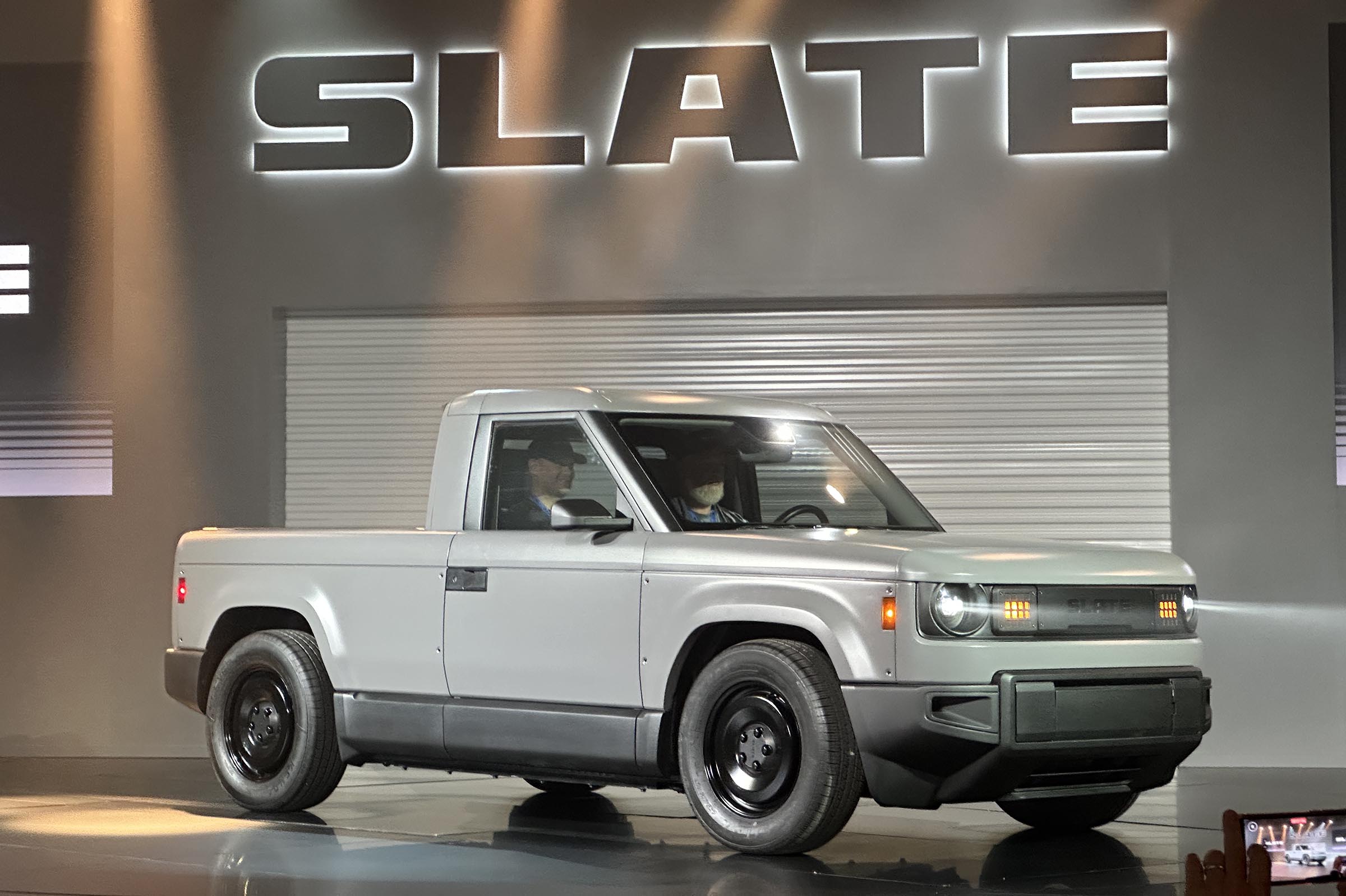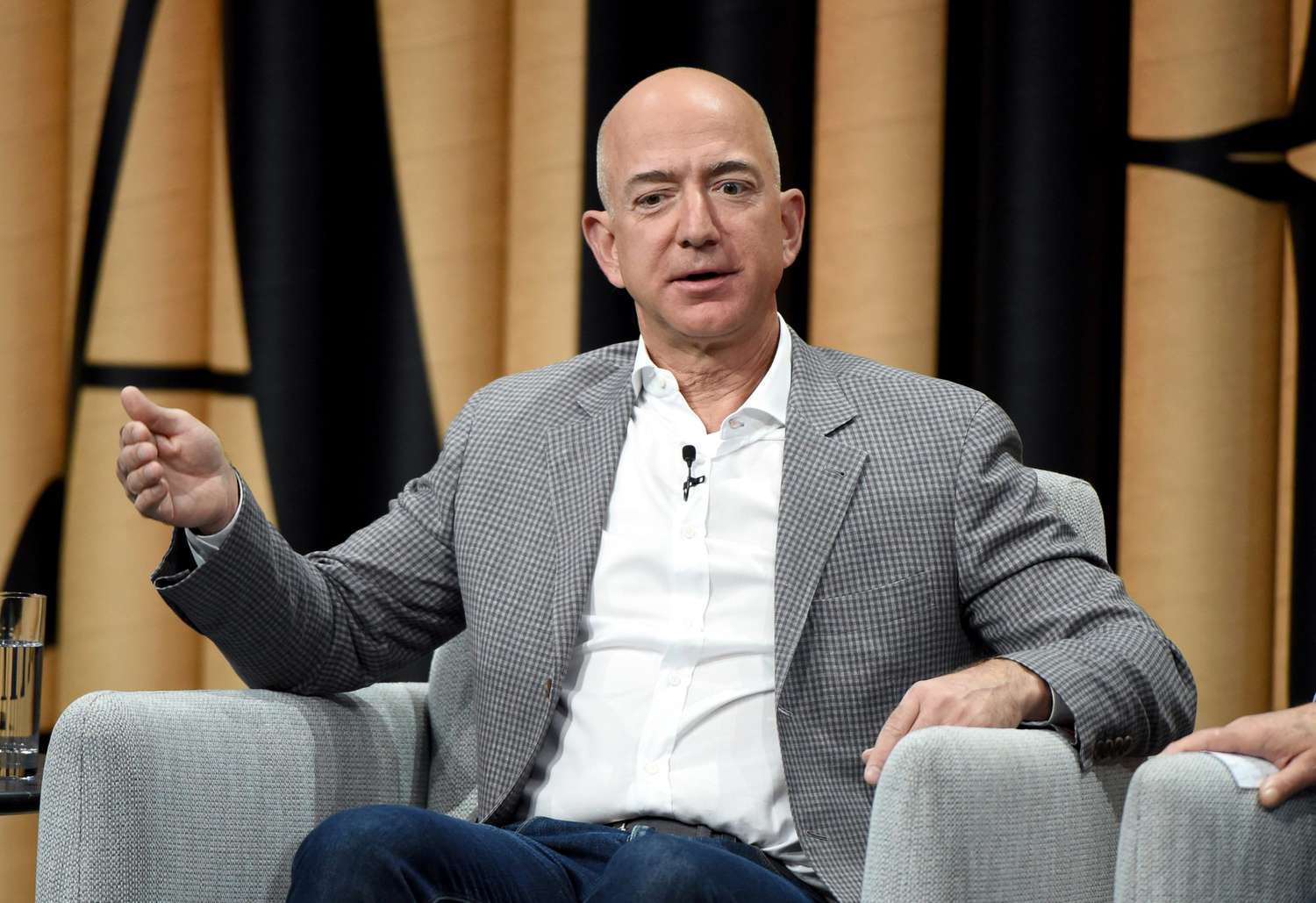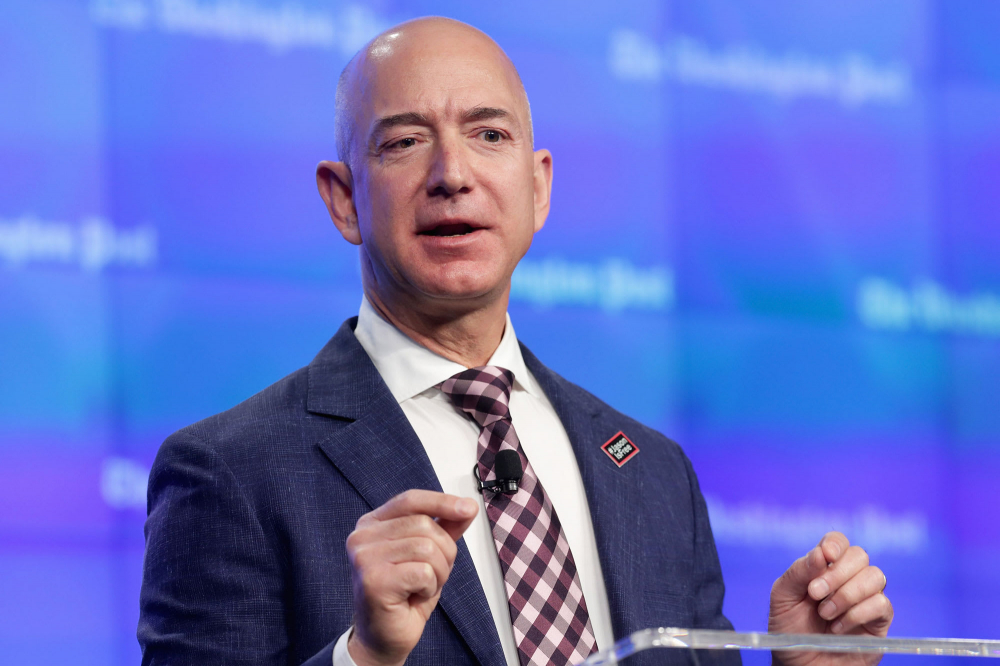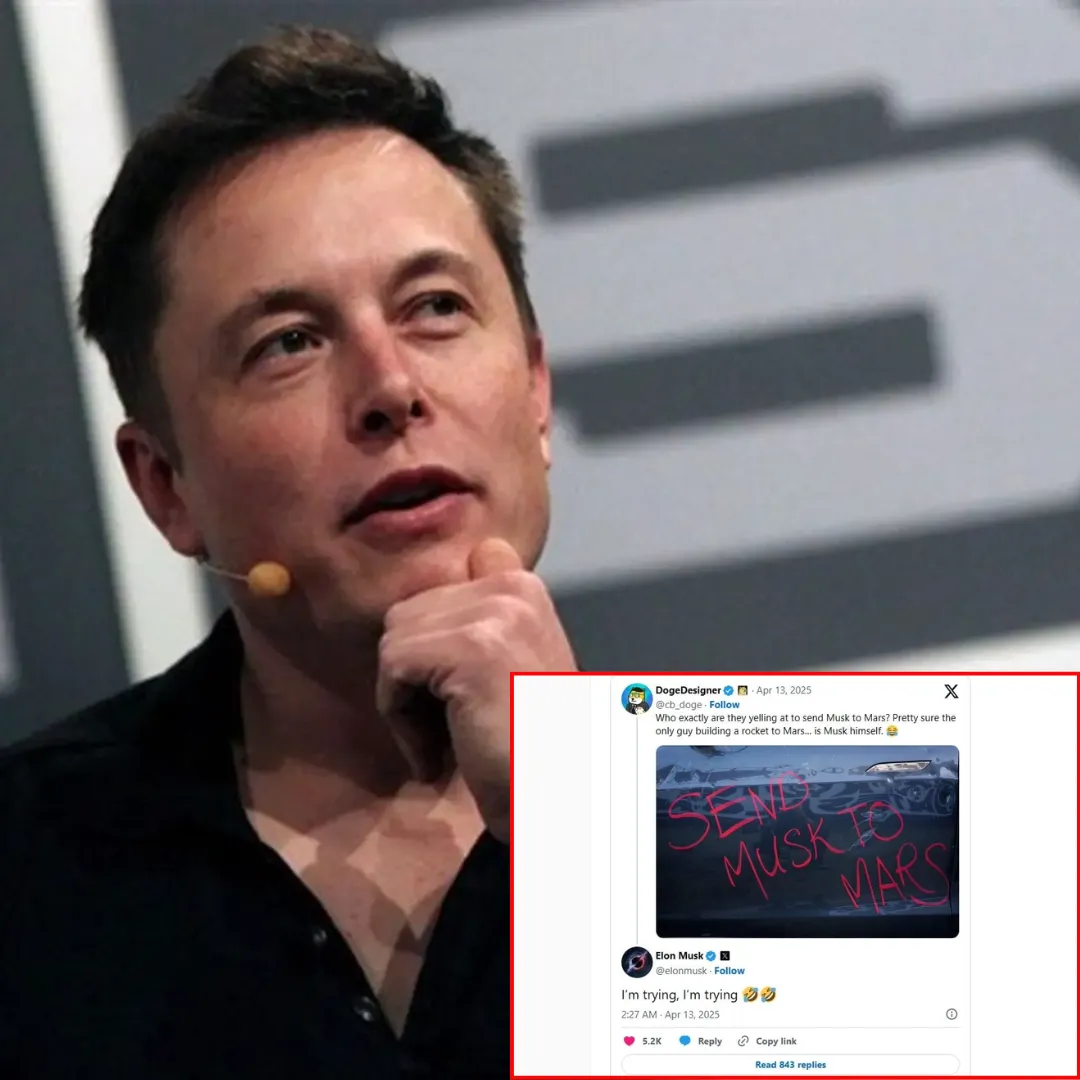Slate Auto, a company backed by Jeff Bezos, has quickly made a significant splash in the electric vehicle (EV) market with its new electric pickup truck. In just two weeks following the unveiling of its pickup design, Slate has amassed over 100,000 refundable reservations, signaling strong early interest in the vehicle.
This rapid growth positions Slate as a potential major competitor in the electric pickup segment, which has already attracted established players like Tesla, Ford, and Rivian. The market for electric trucks is becoming fiercely competitive as these companies vie to attract new buyers and convert traditional truck owners to EVs.

Tesla's Cybertruck has dominated headlines since its launch announcement, boasting over a million reservations, despite its hefty $1,000 non-refundable deposit. Slate’s approach differs notably, with a $50 refundable deposit for reservations, making it easier for potential buyers to place early claims without a substantial upfront commitment.
The pricing strategy for Slate’s truck is also highly competitive. Slate announced that the vehicle will start below $20,000, factoring in the $7,500 federal EV tax credit. This price point is significantly lower than other electric trucks in the market, offering an affordable option to a broader segment of buyers.
One of the standout features of the Slate pickup truck is its convertible design, allowing it to transform into an SUV. This versatility sets it apart in the electric truck market, where customers increasingly demand multifunctional vehicles that can serve varied needs.
Slate has ambitious production plans, aiming to manufacture up to 150,000 vehicles annually at its Indiana factory by the end of 2027. This planned capacity indicates the company’s confidence in scaling operations and meeting growing consumer demand.
However, reservations do not always translate into sales, a reality the industry knows well. Tesla, despite its million-plus Cybertruck reservations, sold just under 40,000 units in 2024, reflecting the challenges of production and market delivery.
Comparatively, the Cybertruck sold 39,965 units in the U.S. during 2024, securing the fifth position in EV sales for the year. Ford’s F-150 Lightning followed closely behind, with 33,510 units sold, showing a strong appetite for electric pickups from multiple manufacturers.

Price comparisons reveal that Slate’s truck is much more affordable than many competitors. The F-150 Lightning starts at $57,090, Chevrolet’s Silverado EV at $75,195, Rivian’s R1T at $71,700, and Tesla’s Cybertruck at $82,235. Slate’s sub-$20,000 price represents a disruptive entry point in this growing market segment.
Slate’s lower reservation deposit and starting price could democratize access to electric trucks, attracting buyers who might find Tesla’s deposit and prices prohibitive. This affordability may be key in converting more traditional truck owners to electric models.
Yet, the history of the EV industry includes cautionary tales about companies overstating demand. Fisker’s claim of 60,000 reservations for its Ocean SUV ended with only a few thousand sales before bankruptcy. Lordstown Motors faced SEC charges for misleading preorder figures before it also declared bankruptcy.
These past failures serve as reminders that large reservation numbers, while promising, require effective execution in manufacturing, delivery, and customer satisfaction. Slate’s journey will be closely watched to see if it can avoid the pitfalls that ensnared previous newcomers.
Slate Auto benefits from significant backing, including from Jeff Bezos, whose influence and resources may provide a stronger foundation than many prior startups. Bezos’ involvement lends credibility and potential access to supply chains, technology, and capital that can support Slate’s ambitions.
Slate’s Chief Commercial Officer Jeremy Snyder expressed humility and excitement regarding the brand’s launch and the response from American consumers. The company is optimistic about its future in the EV market and the potential to reshape electric pickup truck offerings.

The rapidly evolving electric pickup market is at an inflection point, with competition intensifying as companies race to offer attractive, affordable, and versatile vehicles. Slate’s entry introduces a disruptive force that challenges the dominance of established names.
Despite early enthusiasm, market realities such as production scaling, supply chain management, and quality control will be critical in determining Slate’s success. Customers expect timely deliveries and reliable vehicles, and meeting these expectations is essential.
Slate’s innovation in vehicle design, particularly the convertible truck-to-SUV feature, targets consumers looking for flexibility and value. This feature could broaden the vehicle’s appeal beyond traditional pickup buyers.
In addition to the product, pricing, and reservation strategy, Slate’s manufacturing footprint in Indiana signals an intent to contribute to American industrial growth. This production base aligns with broader industry trends encouraging domestic EV manufacturing.
Slate’s affordable pricing could accelerate electric vehicle adoption in regions and demographics traditionally underserved by higher-priced EV models. This democratization of access is a potential game-changer in reducing carbon emissions and reshaping transportation.
The company’s $50 refundable reservation deposit contrasts sharply with Tesla’s $1,000 non-refundable deposit, making it less financially risky for potential buyers to express interest. This could lead to a wider, more diverse reservation base.

While Slate’s reservations reflect strong initial interest, the conversion rate to actual sales will be crucial. The industry’s experience shows that high reservation numbers can sometimes inflate expectations beyond what is ultimately achievable.
Tesla’s Cybertruck, despite its hype and reservations, has faced delays and production challenges, illustrating the difficulty of bringing a new electric truck to market at scale. Slate will need to learn from these lessons.
Slate Auto’s strategy of launching a competitively priced, versatile electric pickup truck backed by a prominent investor sets the stage for potentially reshaping the EV landscape. How the company navigates its upcoming production and market entry will be closely observed.
The electric pickup truck market is growing rapidly, fueled by consumer demand for sustainable and capable vehicles. Slate’s arrival introduces a new competitor that could influence pricing and innovation across the segment.
Slate’s success could encourage more companies to enter the electric truck market, driving further technological advancements and making electric vehicles more accessible.
With backed support from Bezos and a unique vehicle offering, Slate is poised to become a serious player. The company’s approach could pressure incumbents like Tesla, Ford, and Rivian to adapt and innovate further.
The coming years will reveal if Slate’s promising start can translate into long-term success, or if it will join the ranks of previous EV hopefuls that struggled to maintain momentum.
Overall, Slate’s early traction reflects a market hungry for affordable and practical electric pickups. Its strategy emphasizes accessibility and innovation, aiming to capture a significant share of a booming industry.
Customers and investors alike are watching Slate’s progress, eager to see how this new contender performs in a competitive and rapidly evolving market.

The electric pickup truck segment represents one of the most exciting frontiers in the automotive industry. Slate Auto’s emergence backed by Jeff Bezos injects fresh energy and competition.
Whether Slate will redefine the market or face the common pitfalls of EV startups remains to be seen. The company’s next steps in production, delivery, and customer satisfaction will be key.
In conclusion, Slate’s 100,000 reservations in two weeks signal strong interest and potential disruption. With a competitive price, innovative design, and strong backing, Slate is positioned to challenge the status quo.
As the EV market heats up, customers can look forward to more choices and better technology, driven by competition from companies like Slate Auto. The race for electric pickups is just beginning.


-1748836218-q80.webp)
